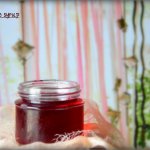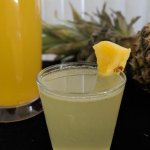Techniques – #H – Hydrodistillation




Hydro-distillation is a time honoured technique of extracting flavour from water-soluble fragrant materials. In case of food, the flavour comes chiefly from the volatile oils present in many plants. These oils are actually chemical weapons, toxins, evolved by the plants to prevent them being eaten. Mankind has learnt to prize many of these toxins for their flavour. Depending on the plant, these oils are concentrated in different parts of the plant.
a. In flowers (rose, jasmine, clove, rosemary, lavender)
b. In leaves (curry, mint, cilantro, lemongrass, thyme, oregano)
c. In the bark (cinnamon, cassia)
d. In wood (cedar, sandal, pine)
e. In aril (mace)
f. In the roots (sassafras, vetiver)
g. In seeds (mustard, fennel, coriander, cumin, caraway, dill, nutmeg)
h. In fruits (orange, lemon, juniper)
i. In rhizomes (ginger, turmeric)
j. In resin (myrrh)
k. In bulb (garlic, onions, shallots, leeks)
By a happy coincidence, many of these essential oils are steam-volatile. When steam/ boiling water is passed through this plant material, it ruptures the tiny oil capsules and releases the essential oils. This is the principle behind hydro-distillation.
In OPOS, we use two hydro-distillation techniques :
1. Clevenger distillation: Herbs and spices are immersed in boiling water in a sealed container.
2. Steam distillation: Steam is passed through a bed of herbs/ spices inside a sealed container. This is employed in recipes which use no water.
Maceration (crushing the plant material) and the higher pressure helps in speeding up the process. In many OPOS recipes, crushed whole spices/ herbs are layered and arranged so that boiling water/ steam can pass through them and release the flavours. Both the essential oils and the flavoured water are then distributed throughout food, but remain locked in inside the cooking vessel, intensely flavouring food.
Certain delicate flavours, like those of jasmine/ cilantro, get degraded due to steam distillation. Such flavourings are mixed in after the cooking process is completed. Fortunately, many other herbs and spices like Caraway, Clove, Nutmeg, Saffron, Cinnamon, Cumin, Ginger, Lavender, Lilac, Citrus zest, Peppermint, Spearmint, & Mint work well with hydro-distillation.
For effective hydro-distillation, the cooking chamber needs to be sealed and needs to be made from a non-reactive metal. In open pot cooking, hydro-distillation happens, but the flavours are lost as the volatile oils evaporate away. When the whole house smells of food, little remains in the cooking pot! In OPOS, the sealed cooking ensures that most flavour remains locked inside food.
Cooking chambers made from reactive metals such as copper and aluminum adulterate the essential oils. Hydro-distillation works best with non reactive metals like anodized aluminium or stainless steel. This is one of the reasons why anodized aluminum cookers/ stainless cookers are recommended for OPOS.
